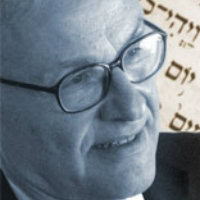The Biblical View of Human Nature: Genesis and Leon Kass

The meaning and nature of mankind is the great question for philosophers, scientists, and theologians. The Hebrew Bible, beginning with Genesis, offers a deep and complex account of who we are—from birth to death, in the family and in the community, as men and as women, called to live justly and yet so often acting in ways that distort, degrade, or even destroy the good and the holy. This course will explore the biblical view of the human condition, guided by Leon Kass’s magisterial commentary on Genesis, The Beginning of Wisdom.
Leading our conversations will be philosopher Alan Mittleman, theologian Meir Y. Soloveichik, and ethicist Eric Cohen. The course will ask big questions through a careful study of the biblical text and its key narratives: Can the creation of the ordered world teach us something important about the stature of mankind? What is the nature of human sexuality and pleasure, family and procreation? What do the stories of the patriarchs and matriarchs teach us about morality and politics, rivalry and the transmission of commandments from one generation to the next? What is the relationship between justice and holiness? Are the biblical teachings in Genesis particular to a specific people—the Hebrews—or universal articulations of who we are and how we ought to live? Along the way, we will consider what claim the Bible itself has on human beings: Is it a text among texts, interesting and wise but admitting of rivals? Or is it the first and final authority over mankind, articulating the best way of life against all other rivals?
Key Texts & Topics
- Genesis, with Robert Alter translation and commentary
- Leon Kass, The Beginning of Wisdom
- Brief selections from Maimonides, Kierkegaard, C. S. Lewis, Joseph Soloveichik
- Contemporary essays by Alan Mittleman, Meir Soloveichik, Eric Cohen, and Steven Pinker
